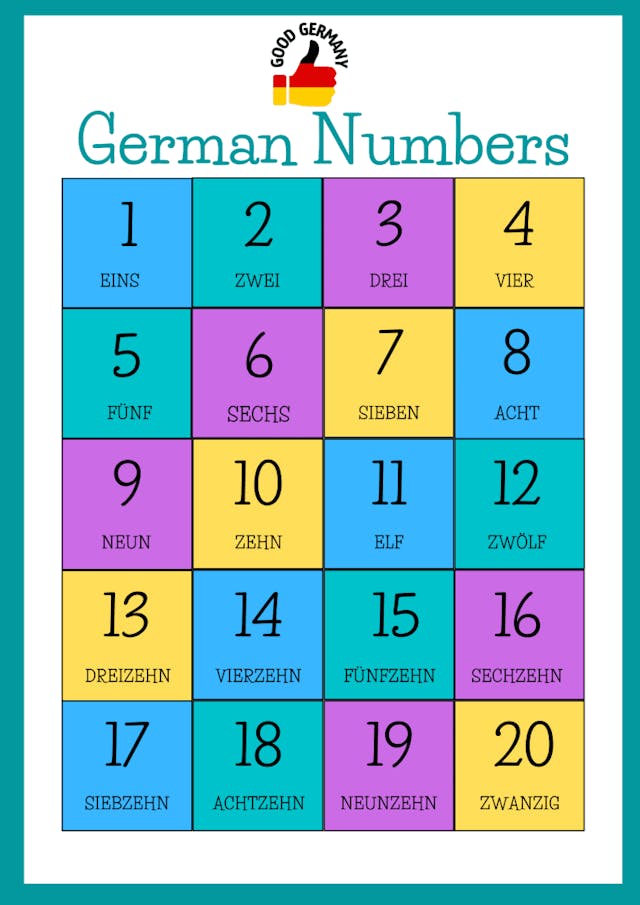German Prepositions with Dative vs. Accusative: A Comprehensive Guide
2023-08-27

In the world of German grammar, prepositions play a crucial role in determining the relationships between various elements in a sentence. Two of the most important cases that prepositions govern are the dative and accusative cases. Understanding when to use these cases with specific prepositions can be a bit tricky for learners of the language. In this article, we’ll delve into the realm of German prepositions with dative and accusative, breaking down the rules and providing you with a clearer understanding of how to use them effectively.
1. Introduction
Learning German prepositions with dative and accusative cases can be challenging but immensely rewarding. These cases determine the role of nouns in relation to the action of a sentence, leading to clearer communication and more accurate expression.
2. Dative Case: What You Need to Know
The dative case in German signifies the indirect object of a sentence. It often answers the question “to whom” or “for whom.” When a preposition requires the dative case, it influences the nouns and pronouns in a sentence.
3. Accusative Case: Unraveling the Basics
Contrary to the dative case, the accusative case indicates the direct object. It answers the question “whom” or “what.” Certain prepositions mandate the use of the accusative case, leading to distinct changes in sentence structure.
4. Common Prepositions Requiring Dative Case
Some common prepositions that govern the dative case include “aus,” “bei,” “mit,” and “nach.” For instance, “Ich gehe mit meinem Freund” translates to “I am going with my friend.”
5. Common Prepositions Requiring Accusative Case
On the other hand, prepositions like “durch,” “für,” “ohne,” and “um” demand the accusative case. For example, “Er läuft durch den Park” translates to “He is walking through the park.”
6. Prepositions that Switch Cases
Interestingly, certain prepositions, such as “an,” “auf,” “hinter,” and “in,” can require either the dative or accusative case, depending on the context. “Ich lege das Buch auf den Tisch” means “I am placing the book on the table,” while “Das Buch liegt auf dem Tisch” means “The book is lying on the table.”
7. Understanding the Context: When to Use Dative or Accusative
Context plays a pivotal role in selecting the appropriate case. Consider the verb, preposition, and the relationship between the elements in the sentence to make the right choice.
8. Mastering the Art: Practice Exercises for Dative and Accusative Cases
To solidify your understanding, engage in practice exercises. Write sentences using both dative and accusative prepositions to enhance your proficiency.
9. Tricky Scenarios: Ambiguous Prepositions
Some prepositions can be ambiguous, requiring a deep understanding of the context. “In,” for example, can take both dative and accusative, leading to potential confusion.
10. Tips and Tricks for Memorizing Prepositions
Memorizing prepositions can be challenging, but using mnemonic devices and real-life examples can significantly aid retention.
11. Conversational Insights: Real-life Usage Examples
Let’s dive into everyday scenarios where dative and accusative prepositions are employed. These examples will provide you with a practical understanding of their usage.
12. Common Mistakes to Avoid
Certain mistakes are commonplace when dealing with dative and accusative prepositions. By being aware of these errors, you can steer clear of making them yourself.
13. Diving Deeper: Nuances in Usage
Explore advanced nuances in preposition usage, such as temporal and spatial relationships, and how they impact the choice between dative and accusative.
14. Comparing with Other German Cases: Genitive and Nominative
A brief comparison with the genitive and nominative cases will further clarify the distinctive role of dative and accusative in German sentence structure.
15. Conclusion
Congratulations! You’ve taken a significant step toward mastering German prepositions with dative and accusative cases. With practice, patience, and a keen understanding of context, you’ll navigate the complexities of these cases with ease.
FAQs
Can a preposition govern both dative and accusative cases?
Yes, certain prepositions can switch cases depending on the context they are used in.
Are there any tricks to memorize the correct usage of prepositions?
Mnemonic devices and real-life examples can be helpful in memorizing prepositions and their respective cases.
What is the role of the accusative case in a sentence?
The accusative case indicates the direct object of a sentence and answers “whom” or “what.”
Is it common to make mistakes with prepositions in German?
Yes, preposition mistakes are common, but with practice, they can be minimized.
Share
Tag
Related Blog

15 List of German Last Names(Surnames) + Meanings
2024-01-14
German Numbers – From 0 To 2000
2023-09-07
The 6 Best Ways To Say Thank You In German
2023-09-07
Germany Language Alphabet
2023-09-01
Most Popular Names in Germany Top 10
2023-08-28
German Prepositions with Dative vs. Accusative: A Comprehensive Guide
2023-08-27
Greetings by Region: German
2023-07-24
German Basic Conversation
2023-07-13
Best Site to Learn German - Top 12
2023-07-06